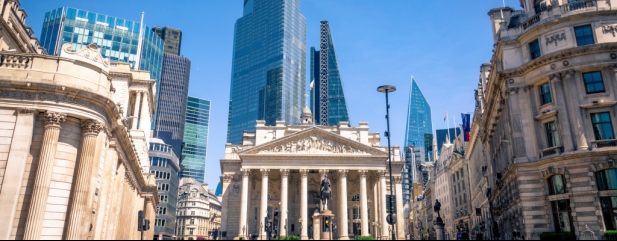Archived article
Please note that tax, investment, pension and ISA rules can change and the information and any views contained in this article may now be inaccurate.
How most UK banks won the market over with their second quarter results

The UK domestic banks second quarter reported season has prompted renewed interest in the sector from investors.
The results, for the most part, were characterised by earnings exceeding consensus expectations and management upgrading their return on equity forecasts for 2023.
NatWest (NWG) was the standout star performer, and Barclays (BARC) produced the least inspiring set of numbers.
Second quarter results from NatWest (29 July) came in significantly ahead of expectations.
Investors appear to have woken up to the fact that the lender is the biggest beneficiary of interest rate rises.
For every quarter point rise in interest rates its net interest income experiences a 5.5% uplift to its net interest income according to Numis’ calculations.
Further rate increases look likely from here as the Bank of England, like other central banks globally, looks to get a handle on inflation.
The boost to earnings that NatWest receives from increasing interest rates has been reflected in management’s decision to pay a special dividend equivalent to 7% of the group’s market capitalisation.
Second quarter earnings from Lloyds (LLOY) (27 July) highlighted two ways in which it has also benefited from the upward shift in interest rates.
First, management have increased their net interest margin forecast from 2.7% to 2.8%.
Second, based on the same Numis research as quoted for NatWest, for every 25 basis point increase in interest rates Lloyd’s earnings jump by 2%, ahead of Barclays at 1.6% and Virgin Money (VMUK) at 1.3%.
HSBC’s (HSBA) second quarter results (1 August) saw earnings come in at double the consensus estimate of $0.14, and the bank raised its interim dividend per share 29% to $0.09, ahead of the $0.08 consensus.
Management have also raised the 2023 return on equity target to 12% from above 10% previously.
However the bank is under pressure to appoint Chinese insurer Ping An, its largest shareholder with a 9.2% holding, to its board amid a battle over the future strategic direction of the business.
Ping An wants to spin off HSBC’s Asian operations in an attempt to unlock shareholder value, an approach opposed by HSBC’s management.
The Chinese firm’s break-up call comes at a time when the group is looking to expand into wealth management and commercial banking in Asia to generate double-digit growth.
Despite beating expectations and announcing a larger than expected share buyback of £500 million, Barclays second quarter results (28 July) were overshadowed by a surge in costs and a decline in the bank’s core equity tier one ratio – a measure of financial strength and its ability to absorb unexpected losses.
The company has been a victim of self-inflicted woes surrounding the sale of structured products in the US.
Important information:
These articles are provided by Shares magazine which is published by AJ Bell Media, a part of AJ Bell. Shares is not written by AJ Bell.
Shares is provided for your general information and use and is not a personal recommendation to invest. It is not intended to be relied upon by you in making or not making any investment decisions. The investments referred to in these articles will not be suitable for all investors. If in doubt please seek appropriate independent financial advice.
Investors acting on the information in these articles do so at their own risk and AJ Bell Media and its staff do not accept liability for losses suffered by investors as a result of their investment decisions.
Issue contents
Feature
- FTSE 250: Can UK mid caps shine again and which stocks should you buy?
- Why Chipotle’s red-hot pricing power has positive read-across for Tortilla
- Why companies who cross-sell have happy customers and investors
- Explaining economic moats and why investors are so keen to own businesses which have them
- Why companies which can lower the cost of doing business are well positioned

 magazine
magazine








